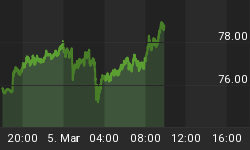While I'm disgusted with the level of banker's bonuses and with the obscene leverage practices financial institutions undertook, I do not think the answer to how we clean up them up now is to pile on yet more regulation. To be sure, banks that helped bring down the world economy and then subsequently got bailed out by the taxpayers should not be making billions of dollars in bonuses, especially while the middle class is suffering so greatly. And if we're going to keep the FDIC in effect, a certain amount of regulation is required to protect taxpayer-backed deposits. But the real remedy does not rest with government, as it was their consistent meddling with markets that engendered the crisis to begin with.
The root cause of the credit crisis did not emanate from banks. It was from the government which manipulated the cost of money and its supply. If banks are given a virtual unlimited amount of money for free, they will find a way to lend it out. That's what banks do. Also, the demand for money on the part of consumers and the enterprise becomes distorted due to artificially produced low interest rates. As a result the money supply booms and asset bubbles are created. Capital then becomes stretched and balance sheets become overleveraged. Yes, bankers acted irresponsibly and I am in no way exculpated them from their bad behavior. But our central bank gave them the kerosene and then lit the fuse. How can the subsequent explosion of their balance sheets really come as a surprise?
But the government does not have any incentive to relinquish control of how much money is in circulation and what interest rate it should carry. That is where they derive a great portion of their power and influence. Therefore, the solution deemed appropriate on the part of government will be; to tax financial institutions, to place a size limit on banks in order to avoid the too big to fail concept, regulate the trading practices on money derived from deposits and to impose arbitrary and capricious capital requirements.
To be sure, no amount of regulation will be able to abrogate greed, but it will instead serve as an example of the law of unintended consequences. Banks got into trouble and then the government bailed them out. Now the government thinks they own them. But it won't stop with increased fees and regulations. They actually want to dictate the lending practices of banks and force them to write down the principal of their loans. Just listen to Robert Weissman (the President of Public Citizen) who appeared with me on CNBC's "The Call" on Thursday January 21st. Unfortunately, his views are also shared by James B. Lockhart, who is the former Director of the Oversight Board of the Federal Housing Finance Agency (the regulator of FNM and FRE).
But this slippery slope of statist intervention won't reverse course until there is a renaissance of markets and a repudiation of government manipulation on the part of American citizens. However, at this juncture we are going full speed ahead in the wrong direction.
The truth is that greed cannot be regulated and banks will find a way around virtually any government led attempt to fetter risk taking. The reality maybe hard to come to terms with but the global experiment with having money created by fiat and interest rates that are set by decree is a miserable failure. Interest rates must be derived through the market function of the demand for money vs. the supply of savings. And money should be backed by something other than a push of a button. Our founding fathers were correct when they provided in the constitution guarantees that our money should only consist of gold and silver. They were afraid of relinquishing the value of our currency to politicians and bankers, who they knew would destroy the middle class by eroding the purchasing power of their money. By having the money supply backed by gold we can finally eliminate the Federal Reserve and the bailout nation it brought about. Banks will lend out money much more prudently, as there will be no longer be a central bank "Put" waiting in the wings. Businesses must also be allowed to fail. Finally, we will be spared from the rampant creation of money, which always finds its way to the elite in society first.
Unless we recognize that fact, bankers will grow fatter on bonuses as the chasm between the very rich and poor grows deeper. The devastation of the middle class will continue and this current economic malaise will only become exacerbated by a steady incursion of the state into the affairs of markets.
Be sure to listen in on my Mid-Week Reality Check and to follow my blog Pentonomics
Follow me on Twitter: http://twitter.com/michaelpento















